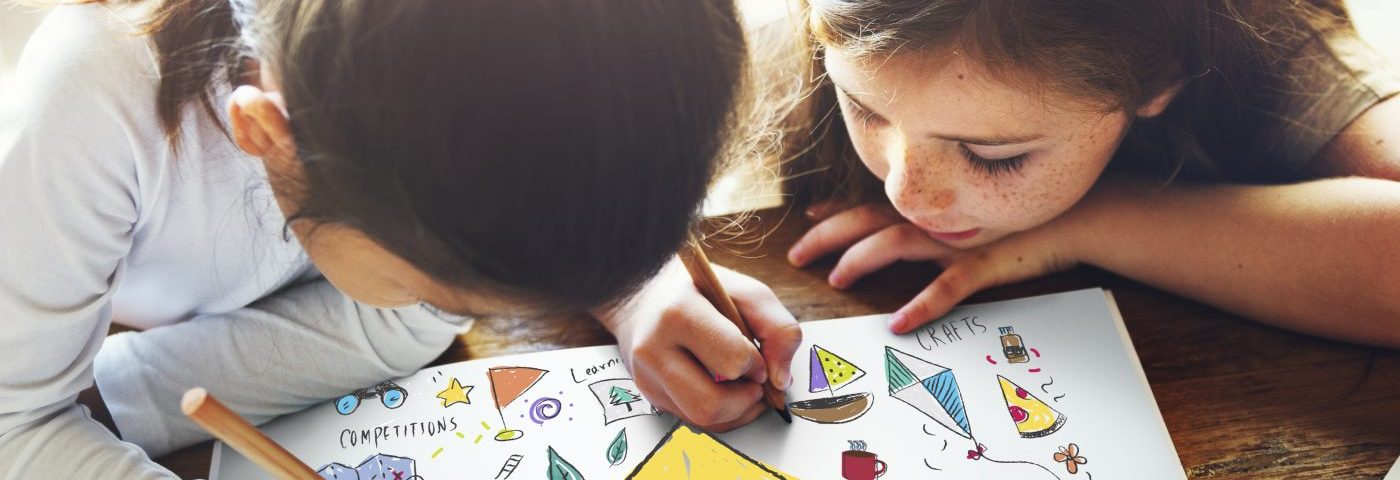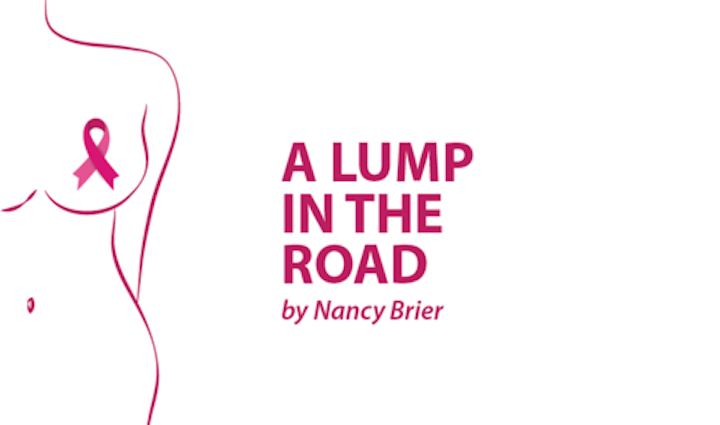The hardest part of cancer? That’s a loaded question, but telling my kid about it ranks up there at the top of that list. Lauren had just turned 10 when my husband and I found a lump in my breast. A few days later, an oncologist predicted that I had three months to live. “We have to tell her,” Gary said. I wanted another day, just one more before we had to rock her world. But eventually, I did it, and if you have to do it, too, here’s my advice:
1. Get your head together.
Before I talked to Lauren, I prayed. I cried. I stared at the wall. I froze pans of lasagna. I prayed some more. I meditated, took deep breaths, binged on chocolate, went for walks, and made water color paintings. I practiced saying words out loud so I could get through what I needed to say. Lauren would take her cues from me and this conversation would remain the cornerstone of those cues. I wanted to get it right. “Of course she wants to know about you,” a social worker told me, “but she also needs to know what’s going to happen to her.” That sounded right, so I channeled my inner 10-year-old and planned what to say.
2. Tell her cancer’s not contagious.
Kids are smart, especially mine. But I’m glad the social worker reminded me that kids probably don’t know they can’t “catch” cancer like a chest cold. I told Lauren we could still hug and touch and share milkshakes and she didn’t have to worry that she’d get cancer, too. Later, when I spoke to her classroom, I told them the same thing. I couldn’t be their volunteer art teacher anymore, but at least I wasn’t giving them a deadly disease.
3. Say: ‘Someone will take care of you.’
Lauren needed to know that with or without me, she was going to be all right. The truth is, I didn’t know how we were going to pull it off, but I did know that no matter what, Lauren would have clean clothes, hot meals, a roof over her head, and God at her side. I told her she’d still go to school every day and get to see her friends. As a family, we’d figure everything out, and she would be OK.
4. Tell the truth. Mostly.
The first oncologist I saw said I’d be dead in three months. The next guy, though, was more optimistic — he gave me a 60 percent chance. When Lauren looked into my face and asked me if I was going to die, I chose optimism. “It’s true that some people die from breast cancer,” I said, willing my voice to be steady. “But the doctor thinks he can cure me. And I’m going to do exactly what he tells me to do.”
5. It’s OK to laugh.
I told Lauren that the medicine I had to take was really strong and that it had some crazy side effects. “I’m going to lose all my hair,” I said. “Even down there.” We giggled because she thought it was funny, and watching her laugh made me laugh, too.
6. It’s OK to cry.
In fact, it’s a must. In my family, we cried together and we cried separately. All of us cried for the same reasons and all of us cried for different reasons. And that’s OK.
7. Like George Michael said, ‘You gotta have faith.’
In the United States, one in 20 children under the age of 16 loses a parent to death. It seems incomprehensible that my kid could be one of them, but at some point, I made peace with that reality. For me, my faith in God really helps. I know that God is with us, the whole time, every step of the way, and that whether or not I physically survive cancer has nothing to do with winning or losing a battle.
Telling a child that a parent has cancer is brutal, but thinking it through in advance really helped me, and I think it helped my daughter, too. And in my case, choosing optimism worked. Our conversation took place five years ago. Now, we talk about where we want to go on vacation, whose turn it is to take out the trash, and everything in between.
***
Note: Breast Cancer News is strictly a news and information website about the disease. It does not provide medical advice, diagnosis, or treatment. This content is not intended to be a substitute for professional medical advice, diagnosis, or treatment. Always seek the advice of your physician or other qualified health provider with any questions you may have regarding a medical condition. Never disregard professional medical advice or delay in seeking it because of something you have read on this website. The opinions expressed in this column are not those of Breast Cancer News, or its parent company, BioNews Services, and are intended to spark discussion about issues pertaining to breast cancer.



Its very hard to tell a small children that he has a cancer. cry is normal if any close child has the symptoms. It is difficult but better to tell them to truth. We must take care of the child to make them comfortable.
For me, thinking through my conversation in advance and focusing during that time on the needs of my child was helpful for our family. I agree that truthfulness is the best strategy. If I erred in this regard, it was to chose to believe and communicate the more optimistic of my doctors, knowing that there was a chance he’d be wrong. So far, I’ve been lucky. My heart goes out to anyone who has this conversation in their past or future.